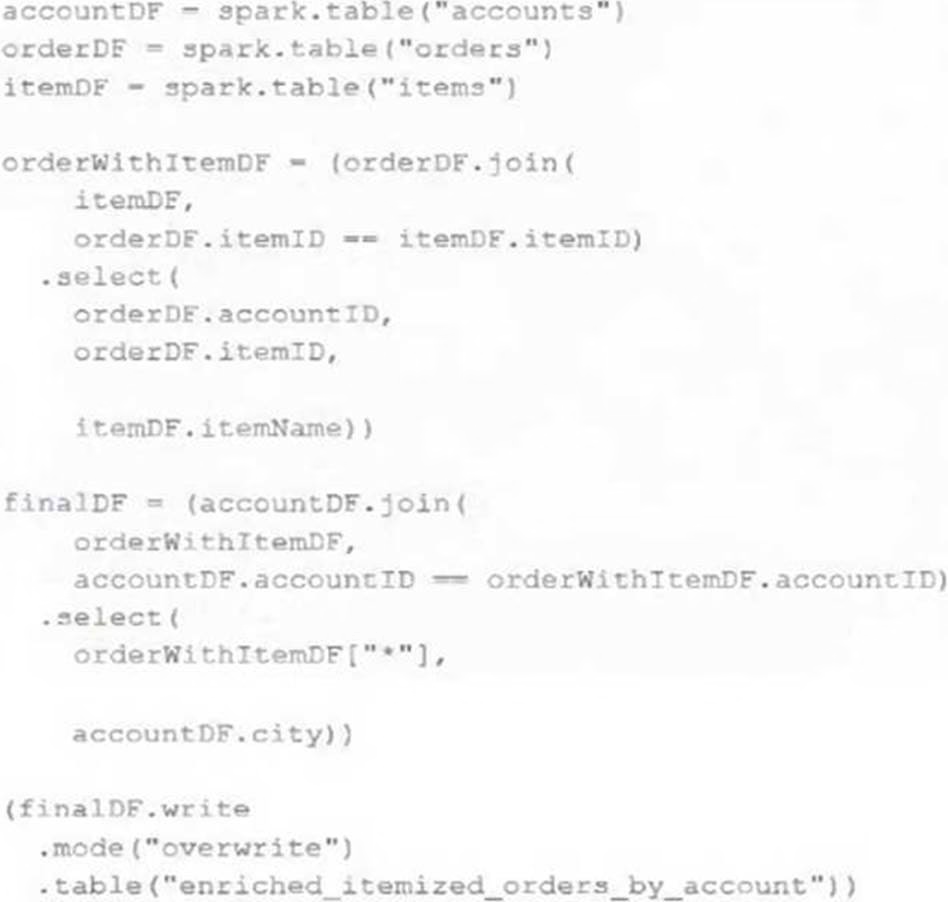Assuming that this code produces logically correct results and the data in the source tables has been de-duplicated and validated, which statement describes what will occur when this code is executed?
The data engineering team maintains the following code:

Assuming that this code produces logically correct results and the data in the source tables has been de-duplicated and validated, which statement describes what will occur when this code is executed?
A . A batch job will update the enriched_itemized_orders_by_account table, replacing only those rows that have different values than the current version of the table, using accountID as the primary key.
B . The enriched_itemized_orders_by_account table will be overwritten using the current valid version of data in each of the three tables referenced in the join logic.
C . An incremental job will leverage information in the state store to identify unjoined rows in the source tables and write these rows to the enriched_iteinized_orders_by_account table.
D . An incremental job will detect if new rows have been written to any of the source tables; if new rows are detected, all results will be recalculated and used to overwrite the enriched_itemized_orders_by_account table.
E . No computation will occur until enriched_itemized_orders_by_account is queried; upon query materialization, results will be calculated using the current valid version of data in each of the three tables referenced in the join logic.
Answer: B
Explanation:
This is the correct answer because it describes what will occur when this code is executed. The code
uses three Delta Lake tables as input sources: accounts, orders, and order_items. These tables are
joined together using SQL queries to create a view called new_enriched_itemized_orders_by_account, which contains information about each order item and its associated account details. Then, the code uses write.format(“delta”).mode(“overwrite”) to overwrite a target table called enriched_itemized_orders_by_account using the data from the view.
This means that every time this code is executed, it will replace all existing data in the target table with new data based on the current valid version of data in each of the three input tables.
Verified Reference: [Databricks Certified Data Engineer Professional], under “Delta Lake” section; Databricks
Documentation, under “Write to Delta tables” section.
Latest Databricks Certified Professional Data Engineer Dumps Valid Version with 222 Q&As
Latest And Valid Q&A | Instant Download | Once Fail, Full Refund

